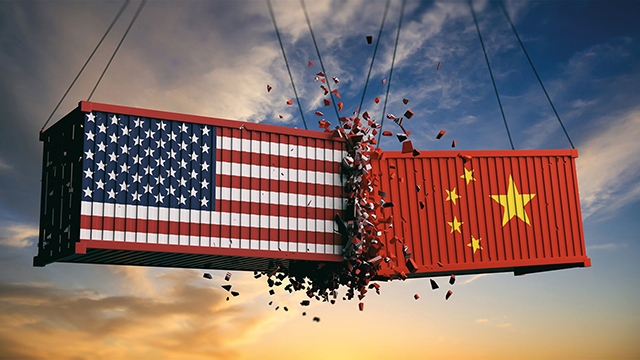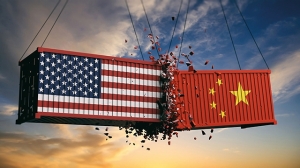The Age of Decoupling & Smaller States
Analyses abound claiming that the coronavirus pandemic will benefit China more than the rest of the world, the US in particular. America is the worst-hit country in terms of human casualties. But the crisis could in fact help the US reorganize its geopolitical thinking toward Beijing, resulting in a radical break in which Washington’s political and economic elites are newly unified against a rising Beijing. One of the results of America’s “reorganization” of thinking might be an economic decoupling. This would involve cutting off deep economic relations with China. Considering the level of engagement, global ramifications would be massive.
Cutting off the Chinese would be a massive enterprise. Some might even think that a more efficient policy would be to give Beijing some economic elbow-room. Otherwise the country will be forced to create its own economic empire through its massive Belt and Road Initiative (BRI), its close partnership with many Eurasian states and through its numerous (future) ports in the Indo-Pacific region. This would mean a more unstable situation in the world. In fact, similar was the case before WWII when the US increased economic pressure on Japan and the latter had to break out of the oncoming economic disaster. The result was an increase in Japan’s decisiveness to enter into conflict with America over the Pacific.
For the moment, the real question is how far the decoupling could go. For instance, President Donald Trump once threatened that America “…could cut off the whole relationship”. Several days ago, Reuters reported US Treasury Secretary Steven Mnuchin saying that a decoupling of the US and Chinese economies will take place if American companies are not allowed to compete fairly in China’s economy.
That could spell the reemergence of competing blocs. This will unlikely be exactly as during the Cold War, but certain economic spheres might emerge where China and the US would not be able to intrude into each other’s respective zones. This is already evident in the case of the aforementioned BRI. Added to this should be the pursuit of developing competing technologies which will set off future economic transformations.
This has fit neatly into overall geopolitical developments since the 1990s that indicate how most crucial states in Eurasia have been working breakneck to create their spheres of influence. It has been undermining the US, the US-led bloc, and therefore the entire post-Cold War world order. However, Washington could still rein in Russia’s and Iran’s ambitions, at least partially. But with China’s rise, the level of competition for the US reaches new heights. Now, Washington has fewer tools with which to hamper simultaneously ambitious Russia, China, and Iran, especially when the three are increasingly working in concert by cooperating through the United Nations platforms, militarily and economically.
Small nations are most vulnerable if even a partial decoupling takes place. They are likely be forced to choose. In the Cold War, some states could resist the appeal of the US and Soviet Union by staying relatively neutral. Nowadays, it will be extremely difficult, as both China and the US pursue economic expansion, and few if any states would be able to resist being pulled into one or another economic bloc. This should remind Georgia of its vulnerabilities and the need to increase maneuverability in an increasingly subdivided Eurasia. All will depend on how far the US is able to pursue its interests in the Black Sea region and the South Caucasus.
By Emil Avdaliani
Image source: treasurytoday.com











